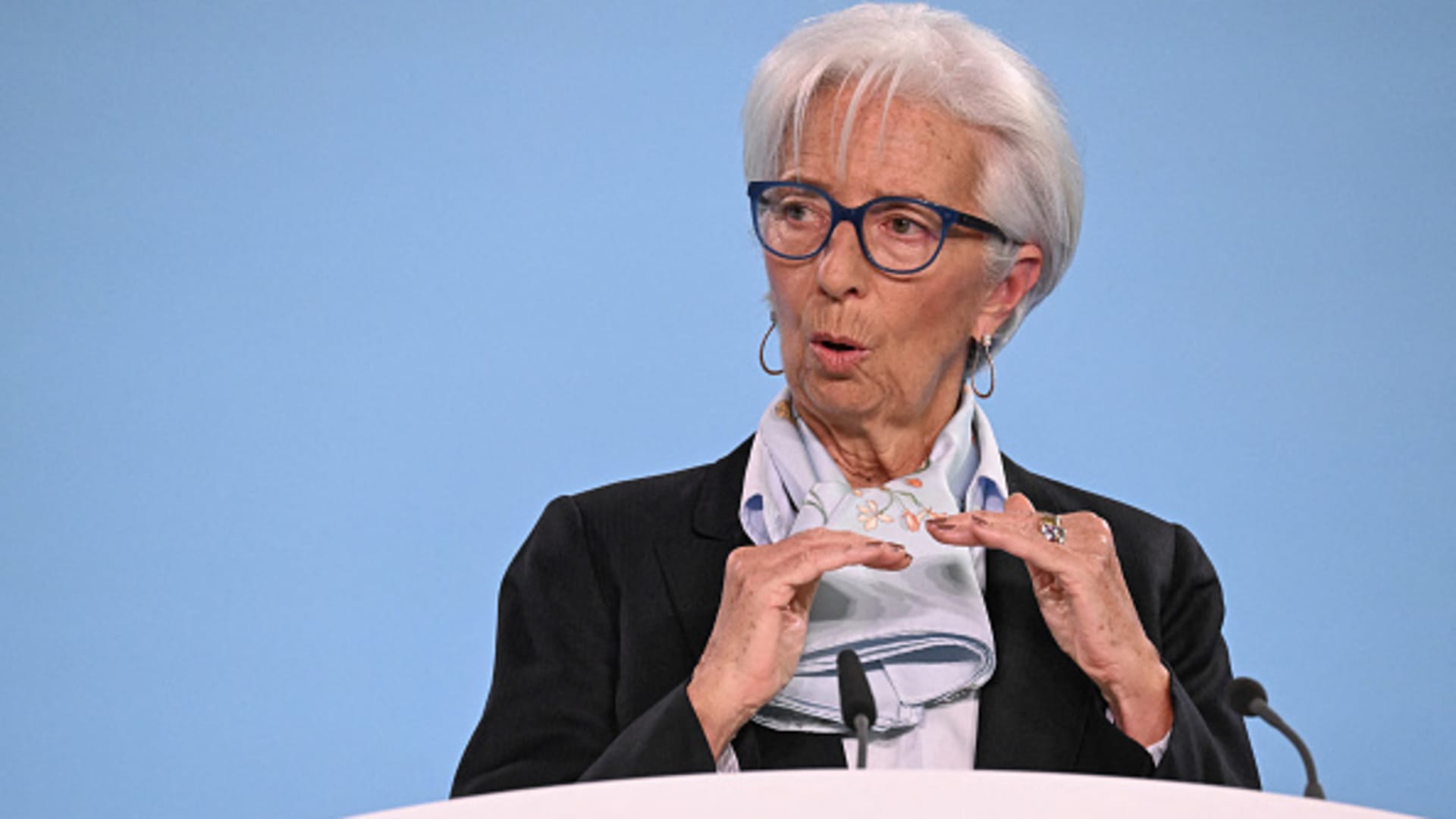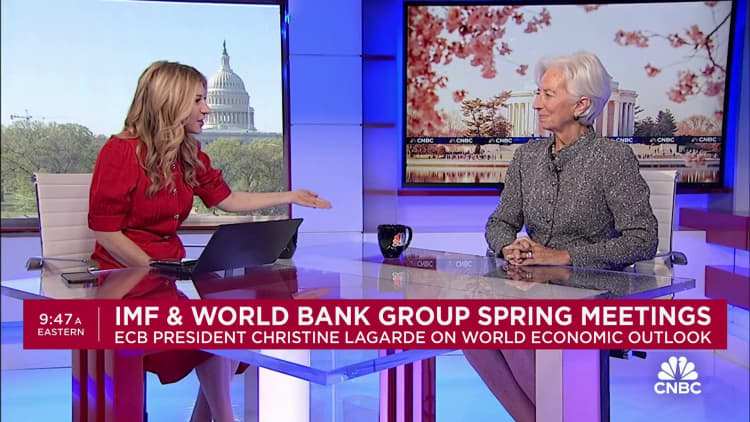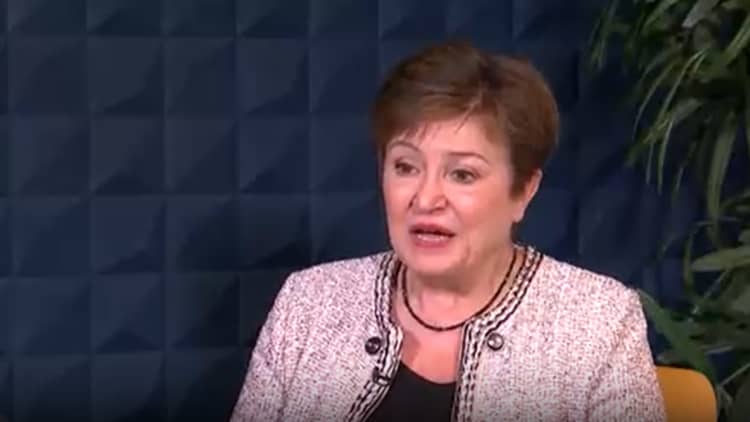Fed and ECB divergence on rate cuts could spell trouble for the euro, economist says

The President of the European Central Bank (ECB) Christine Lagarde gestures as she addresses a press conference following the meeting of the governing council of the ECB in Frankfurt am Main, western Germany, on April 11, 2024.
Kirill Kudryavtsev | Afp | Getty Images
The prospect of the European Central Bank diverging from the Federal Reserve on interest rate cuts is likely to be “particularly negative” for the 20-nation euro zone, according to one economist.
The ECB appears on course to cut interest rates in June, barring any major surprises, and recent inflation data has since bolstered the case for an imminent reduction in borrowing costs.
The U.S. central bank, meanwhile, held interest rates steady on Wednesday, with the rate-setting Federal Open Market Committee citing a “lack of further progress” in getting inflation back down to its 2% target.
The Federal Reserve said in a statement that it did not expect to reduce rates until it had gained “greater confidence” that inflation was moving sustainably back toward its target level, reiterating language it used after the March and January meetings.
It leaves the ECB firmly on track to cut interest rates before the Fed.
“The problem of cutting rates right now is that the ECB takes for granted the strength of the euro. And if they start to cut rates ahead of the Federal Reserve, that is basically giving the world a signal that the euro needs to weaken,” Daniel Lacalle, chief economist at Tressis Gestion, told CNBC’s “Street Signs Europe” on Thursday.
“And if the euro weakens, the import bill of the euro zone is going to rise, making it even more difficult for the euro area to grow.”
Lacalle said a June rate cut from the ECB was not going to make German, French or Spanish businesses take more credit “because a small rate cut is not the driver of credit demand.” Credit demand refers to the appetite for business and consumer loans.
He added, “What makes credit demand interesting, or rise, is the fact that there [are] economic and investment opportunities and those are curbed by regulation and the misguided energy policy of the euro area.”
An ECB spokesperson declined to comment when contacted by CNBC.
Kristalina Georgieva, the managing director of the International Monetary Fund, has played down the prospect of any negative impact from a monetary policy divergence between Europe and the U.S.
Speaking to CNBC’s Silvia Amaro earlier this week, she said that “we are not too worried about the exchange rate impact,” adding that the IMF’s analysis showed that the 50 basis points difference between the rates of the U.S. Federal Reserve and those of the European Central bank “is likely to lead to miniscule or 0.1 to 0.2% shift in the exchange rate.”
“And that is to say that here [in Europe] this is not a big issue,” she added.
ECB heading toward a rate cut?
Speaking to CNBC on last month, ECB President Christine Lagarde said the central bank remained on course to cut interest rates in the near term, subject to any additional shocks.
“We just need to build a bit more confidence in this disinflationary process but if it moves according to our expectations, if we don’t have a major shock in development, we are heading towards a moment where we have to moderate the restrictive monetary policy,” Lagarde said on April 16.

Official figures published Tuesday showed that prices in the euro area held steady at 2.4% in April, while the economy returned to growth over the first three months of the year.
Gross domestic product rose by 0.3% over the first quarter, slightly better than consensus economist expectations. GDP for the fourth quarter of 2023 was revised from no growth to a 0.1% contraction, which means that the euro zone was in a technical recession in the second half of last year.
Tressis Gestion’s Lacalle said one prevailing market narrative was that high interest rates in Europe were to blame for sluggish economic growth. “However, the euro zone slowdown has absolutely nothing to do with rate hikes,” he said.
Instead, Lacalle said recent economic weakness across the euro zone should be attributed to the bloc’s energy policy, regulatory measures and farming and agricultural policy.
— CNBC’s Jeff Cox & Jenni Reid contributed to this report.










